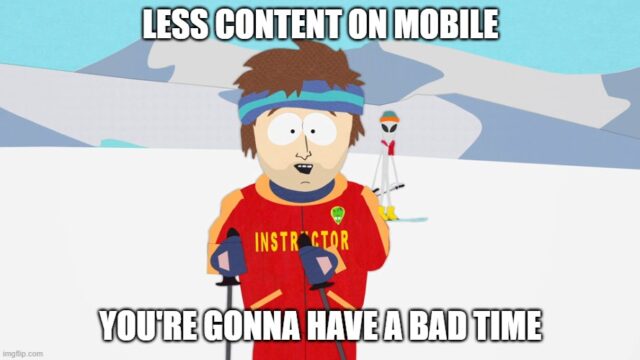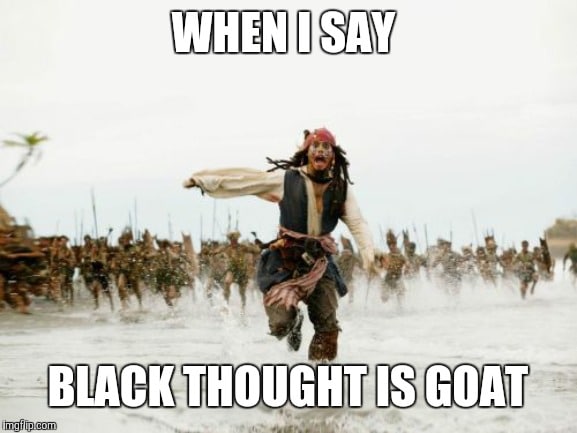Today we have an SEO, self-described Marketing Technologist, keynote speaker, Search Marketer of the Year, and rapper. I first met Mike when we were speaking at a Digital Summit conference, I miss those.

In this episode, we discuss…
- Mobile-first indexing
- Missing SEO tools
- Team alignment and marketing success
- Relying on Google for SEO answers
- Similarities between rap and SEO
I hope you enjoy it! There is a ton of great stuff in here!
Digital Transcript – Edited for Readability
Introductions
Jon-Mikel Bailey: Hi, I’m Jon-Mikel Bailey, and welcome to the Wellspring Digital Chat. This is where we capture, we sequester, digital marketing brains. We plug them into all sorts of devices, we extract useful information, and then we release them back into the wild.
Today we have an SEO, self-described Marketing Technologist, a keynote speaker (who is one of my favorites, who I’ve seen speak before), Search Marketer of the Year, and rapper. I first met Mike when we were speaking at a Digital Summit conference, which I miss dearly going to those. Anyway, Mike, please go ahead and introduce yourself to these good folks.
Mike King: Yeah, the only thing I would add that you didn’t say, I’m also a dad of two beautiful children. (The most important thing?) Yeah, so yeah, my background is first in computer science. Then I made music for a living, then I started working at agencies. After a few years of doing that, I was like, “Hey, I’m pretty sure I could do a better job myself.” And here we are seven years later, and I’m not completely wrong.
So my agency I pull rank based here in New York City, but who’s based anywhere at this point, because we’re all working from home and home can be any. It’s funny, you say sequestered? Because that’s how I feel in the space. Yeah, that’s why I am, that’s what I did.
Jon-Mikel Bailey: Yeah, it’s like we’re stuck in some, like very strange reality TV show where our only contact with real life is through video screens. Very bizarre. So it’s not every day that we get to interview the a search marketer of the year. So I expect big answers from this. It’s pretty exciting. So it should be great for all the marketing, peeps listening here as well. So let’s do this.
Mobile-First Indexing – Biggest Shake-Up in SEO This Year?
Jon-Mikel Bailey: So Google, recently made the official shift to mobile-first indexing in September of last year. In a recent post, where you argue that this is this will cause the biggest shake-up in SEO this year, you say that “all those sites that are rendering less content on mobile are about to have a bad time.” First. I really hope that that’s a South Park reference. (They are.) Awesome. Perfect. Great. Second, can you explain what you mean, in somewhat non-SEO terminology?

Mike King: Yeah. So you know, when people make websites for mobile devices, they assume that people want less content. And so generally speaking, people will serve less content on mobile than they do on desktop. And thus far, that’s been relatively okay. Because Google will crawl in both contexts. Like they’ll look at the page, as a user might see it in mobile, they’ll look at it on desktop, and then they make a determination of like, okay, which of these do we want to actually use for putting into Google itself?
But the problem is, we did some research as part of this big study we did for the Web Almanac. And only 16.29%, I think it was, of pages showed the same content on mobile and desktop.
Jon-Mikel Bailey: Which I was totally surprised by.
Mike King: Yeah, it’s mind crazy. And so Google is making a shift to only indexing the mobile content. So only what’s being shown on mobile. And so when that shift happens, because there’s going to be so many differences and so much less content, any site that doesn’t have parity between those two contexts, is going to lose rankings, because Google is going to see a lot less of that content.
So, you know, a lot of the focus this year has been on Core Web Vitals, which is those speed measures that Google’s adding to the algorithm. But, you know, I think that’s going to be a relatively small change, whereas seeing less content in the index for the majority of the web is going to cause a significant change to rank.
Jon-Mikel Bailey: Yeah, I mean, when you make the case that way, it’s like, it kind of causes a little bit of a holy crap moment. I would imagine.
Mike King: And the thing is that, you know, most tools don’t natively show you, your tools aren’t automatically going to look at everything, context, these comparisons and say, “Hey, you have this problem” because it’s just too computationally expensive for a lot of these tools to do things like that.
Missing SEO Tools
Jon-Mikel Bailey: Which you made a tool. Speaking of parody, you made it made a little tool, a free tool, introduced it to the world in that same post called Parito. So I love first, I’d love to hear more about that tool. But what I really want to ask, this is your magic moment. What tools are missing in the world of SEO? Like, if you could develop one magic tool? What would it be? And why?
Mike King: Yeah, so first Parito is the tool that does the things that I just said most of us don’t do? What it does that crawls your page eight times, and it makes comparisons to see, you know, what is missing in those different contexts?
Jon-Mikel Bailey: And I’ll Parito in this in this post below. Definitely, because it’s very cool.
Mike King: And to your question, what would I build? I mean, you know, first, there’s just like, a lot of problems with SEO tools, right? Like, one of the questions that I asked in our interviews for SEO engineers, is, what is something that a popular tool doesn’t do? And how do you account for it? Because as an example, you know, all the link indices, while not all of them, Majestic does allow you to do this.
But some of the other link indices don’t allow you to get all the data that they have on a given site. So say, for instance, we’re talking about, you know, a website like Adidas.com, they’ve got hundreds of millions of links, there’s no way for you to get that data out, and then use it. But the bigger problem that I see across SEO tools is that it requires you to take the data out to be able to do all these different extractions, and transformations, and so on to the data to get to the insights that you want, they’re not doing enough natively.
And so you’re like, “cool, give me the CSV, and then I’ll turn it into a data scientist.” And what I would prefer is if you had that capability, basically natively in the tool, and I think Botify does a great job of this, where it’s like, you can take any two data points, or any number of data points and cross-tabulate them where it’s like, Alright, I want to know about this URL, you know, give me a view of whatever data points that I want.
And then you can extract it if you want, or there’s a lot of different analysis you can do within the tool itself. So what I would build would be more like, you know, a better all-in-one platform. You know, one that natively has the capabilities to get to those insights that you want. Something like SEMrush, but just more data analysis capabilities built into it.
But another thing that I would build, just kind of speaking on SEMrush, they’re a public company now. And I feel like it’s okay. I feel like the data set that they have, they have the capability potentially, of looking at changes over time, because they track rankings every day for millions of websites.
And so they can potentially do something, whether it’s just like simple regressions or whatever, like, you know, variety of different models, and say, based on the changes that we saw on this day, here’s what we think happened and the algorithm. They should be able to parse that out for you. And kind of give you you know, a report, just a data-driven report, obviously, you still want to qualitatively review those types of things.
But I think that there is an opportunity for them to not only just be reactive to what happened, but also potentially predict what may happen because they just have such a large data set. So I’m, I am a developer. And so I am in the process of building tools. (I had a feeling) But you know, things, things like that. I like my big picture things like “Yeah, right, someone should do this.”
Jon-Mikel Bailey: Yeah, hopefully, you didn’t give away any trade secrets that.
Mike King: I don’t have any inside knowledge on what SEMrush is doing.
Jon-Mikel Bailey: Maybe they’re paying attention, and we could start a tool war where we see who builds a better dashboard. Now it’s funny, you say that, because we have, we have a saying here at Wellspring, it’s Karl’s saying, which is “don’t trust the tools.” You know, it’s just like, you need it’s unfortunate, but yeah, you need like three, four or five different tools to get all the information and the data that you want.
Mike King: Right and just going back to this idea of link indices. When we do a backlink audit, we don’t just like log into the tool and grab screenshots and say, “Oh, it’s got 40 or whatever.” We download all the links from everywhere, and then we crawl them ourselves because those link indices are so big, it’s difficult for them to crawl everything and have the data be up to date.
And so you need to do that and say, “Okay, well, it looks like 40% of these links are actually broken,” and your tool would have been able to tell you to some degree, but you’re not going to have complete accuracy. And yet to the point of not trusting the tools, I’m completely on board with that, you got to validate that data is just, you know, the reality of data.
Team Alignment and Marketing Success
Jon-Mikel Bailey: Absolutely. You have Rank and File, which I love the name, video series, you ask and answer the question, “does SEO take six months?” And I love your answer, and I will link to it here because it’s so well thought out and we’ll just leave it at that.
But what I want to ask is, in your experience, how much of an impact does alignment have on the success of any digital marketing effort? Because in your answer, you talk about alignment as being a key to the success of SEO. But is it broader than that? Do you think it’s it’s digital marketing or marketing-wide? Or even company-wide that alignment is crucial today?
Mike King: 100%. You know, it’s crucial to everything you’re doing in a company or any team environment, right? Because you’ve got a whole bunch of people going in different directions, you’re not going to get anywhere. And so you know, bringing that point up in the terms of SEO just kind of like, clarifies it is not just about like, “Oh, well, how long does it take to do an audit?”
Or “how long does it take for Google to crawl the site,” which was the historical thinking because Google data used to take a long time to recrawl a website. But the reality of it is that, where they’re at with their technology, that computing power, and resources, it does not take them a long time.
And so it’s really about how long is it going to take you and your organization to actually get things done? And that’s the real variable, right? Because it comes down to prioritization in the organization, it comes down to people trusting you. It comes down to, you know, “can we actually do the things that we planned?”
And it’s very easy to be like, “Oh, well just, you know, put rel canonical tags and do 301 redirects and all this.” The problem is, it is an effort that requires people to get educated and must make time for doing the thing that you want. And we all know, that’s never easy in organizations.
Jon-Mikel Bailey: And, and I mean, it’s, I think it’s fair to say that the need for alignment and the need for, you know, cross-organization cooperation if you will, is only going to increase as these systems get more complex, and, you know, more things are thrown into the mix.
Mike King: And the other thing is that SEO is inherently cross-functional, right? Like, there’s no just like, “Okay, I’m gonna sit in the corner and do SEO.” No, you got to talk to a variety of different teams, whether that’s strategy, marketing, product development, operations, there’s a whole bunch of, content, there’s a whole bunch of different teams that you’ve got to get in alignment.
So it’s always gonna be difficult. Like, it’s always gonna be unless you’re, you know, a small company of five people, or you’re doing a website yourself or whatever, you’re always gonna have difficulty getting the team to inch forward on this thing, like a football team, basically.,
Jon-Mikel Bailey: I don’t know, I’ve seen some five-person companies that are very much out of alignment. I don’t think size makes that much of a difference. Is it more about personality?
Relying on Google for SEO Answers
Jon-Mikel Bailey: So in a recent Search Engine Journal post, you say that Google’s, you say that you believe Google’s assertion that clicks are not direct ranking factors to be a semantic argument, which I love that phrase. And I feel like people are constantly looking for Google to, you know, answer a question outright and definitively, like, “Google says…” But is that possible, considering the complexity of their systems and processes? In other words, is relying on Google for all your SEO answers a mistake?
Mike King: Yeah, I think you do that you’re also gonna have a bad time. Because they can only say so much for a variety of reasons, not just like, you know, “we don’t want to give you the algorithm or whatever.” But there’s also just like, a lot of a lot of like, what’s the word where they would be on the hook for it? I can’t remember the word. liability, I guess, right? A lot of liability.
And so, but part of it is that the vocabulary that a lot of those people use is different from the vocabulary that we use in SEO, right? Like some of them literally, right. And there’s phrasing this speaking more on like the information retrieval level when they’re talking about things because they are building an Information Retrieval System.
Effectively, SEOs are users of that system, who have their own vocabulary to describe things because they don’t necessarily know the nuts and bolts and all that type of stuff. And so sometimes, when they say things to us, we interpret it in the wrong way. Because we don’t know the vocabulary that they’re using. We don’t know the basis of these types of systems.
And when we talk about, you know, this idea of I think I was referring to this idea of them using clicks or not using clicks, or whatever. And so in information retrieval, using clicks is a base level thing that is done to determine whether or not a session was successful. And Paul Haahr, who is a search engineer over at Google, gave a talk a few years ago at SMX, where he talked about how for evaluation when they’re testing to see if the results are good or not, they do use clicks to determine whether or not there was a successful session.
And so, where I say that argument is semantic, Google says they’re doing tests every day. And we know they use clicks to inform these tests. We also know that you can be in a cohort for testing at any given point, right?
So like, we’ve seen a number of times, where Rand and Eric Enge have done that test where they said, “Okay, let’s click this all bunch of times, get a whole bunch of people to do it, and we see a pop-up.” So that could be a function of you know, being in the cohort that a test is actively running.
And we don’t necessarily know because they could slice these cohorts in a number of ways. But they also have a patent. I think it’s called time-based ranking, where if a certain number of clicks happened, within a certain timeframe, a ranking will change, like, that will go up higher in the rankings.
So a patent doesn’t necessarily mean that it is active, it’s something that is in production. But it does mean that someone thoughtfully considered it. And we are seeing a direct impact from that. So it suggests that there is something in there that does react to clicks. They make arguments all the time about clicks being noisy, which makes sense. But the reality of it is there is something in there related to clicks.
Jon-Mikel Bailey: Well, and there’s also, I asked Duane Forrester a similar question, and, and his answer was great. He was like, “there are also times when Google doesn’t know, this crazy system, and it’s like this black hole of algorithms and data sets, then they can’t answer the question directly.” It’s not possible.
Mike King: Yeah. And that’s also true. Um, you know, the reality of it is when you’re talking about machine learning systems, and if you’ve got, let me take a step back. So we talked about the algorithm like, it’s one thing, right? That’s not true, right? It’s like a series of microservices, that all interact with each other, and then ultimately, compose a series of results, right?
And so when you think about, you know, how those can all interact, you got a series of different machine learning models across this, you don’t necessarily know why the system made the determination that it did. You just know that you built this part that does this thing, and it outputs that, but you don’t know how it got there.
And so you can completely expect that someone can’t completely tell you how something ranks, but you do know what their inputs are. They do know what their inputs are, and they do know what the outputs are. So at the end of the day, you know, yeah, it’s probably difficult to say like, “Okay, well, we added this to that, and then it created these rankings,” but they do know what they wrote to actually get to that point.
Jon-Mikel Bailey: I’m really scared for when Google starts mass-producing robots.

Mike King: I’m pretty sure they already do.
Jon-Mikel Bailey: Publicly mass-producing robots.
Similarities between Rap and SEO

So if you’ll bear with me, I want to ask you my Barbara Walters / Oprah Winfrey style question. So you are a rapper. So far, we’ve had an SEO that plays guitar, Duane Forrester, and actually builds guitars. We’ve had an SEO that DJs and plays the drums, Lily Ray. And now we have an SEO who is also a rapper. So want to ask you, are there any similar To use between SEO and rap?
Mike King: Yeah, absolutely.
Jon-Mikel Bailey: That’s the answer I was hoping for.
Mike King: My experience of this has been very similar, right? Like, I kind of have analogs in that, you know, writing a blog post is like writing a song, don’t give it a conference talk is like doing a show. It’s really similar in that, like, when I rap for a living, I was just flying around the world, and jumping on stages and showing you I got. The same thing I do as a speaker.
And it’s similar, like a creative outlet for me, you know, in the way where it’s like, I put something together, and I’m so excited about it. And there’s like, a creative aspect to it. But there’s also a science aspect to it as well. And then, you know, I just can’t wait to put it out and see what the reaction is.
And then, you know, ultimately, once you put the song out, it’s no longer your song, people do something else with it, they create experiences around it. Same thing about writing for SEO, because, you know, ultimately, people learn something from it, and then they alter it, and they do something else.
And then you’ll see, you know, someone else, write another post this like tangentially related, and you see how you influence that and so on. And then, you know, when I get on stage, and I give a conference talk, the first thing I say is “make some noise!”
I get people hyped and, you know, ready to be engaged and so on, because they’ve been there like all day. And so, you know, I designed my decks in the same way that I designed my sets, but it’s like peaks and valleys, and how it’s being presented. And it just, again, keeps people engaged. So definitely a very similar experience.
And also, on the technical side, which you may not think that about rap, because, you know, there are people that are considered technical rappers in the same way that people are considered technical SEO. And so you know, the way you structure bars and structure verses, and so on. There are technical components to it, right?
Because like you can rap and you can be rapping, like, you know, cat, hat, bat, and things like that. Or you can make your syllables rhyme in minimal time, like that, see what I’m saying? And so the multi-syllable matching is a very technical thing that can be stacked in a variety of ways. So technical SEO is obviously very similar to that. So rap, and SEO, for me have been a complete analog. And I definitely felt as though I was prepared to do this by what I did in rapping.
Jon-Mikel Bailey: Yeah, I totally agree. I’m not a professional, but I play the drums and I write music with people. And it’s it is, it’s a lot of like, problem-solving and mapping and, you know, arrangement. And, you know, and almost in a way, you know, there are data sets in a song, you know, just like bits and pieces of information that you’re kind of rearranging.
Mike King: Yeah, yeah. And, you know, rap, I think, I mean, I think I was always a structured thinker, but rap actually forced me to, you know, kind of codify how I do my structured thinking, right? Like, a lot of my rhymes were extended metaphors. And so you know, what you have to do is like, collect a bunch of information, structure it and then figure out a way to make it clever and make it fit together.
And then also, that whole layer of like the rhyme schemes that I was just talking about, all of that is like, okay, learning that and doing it in a creative way. But there’s again, a bit of a science aspect of it prepares you for something like SEO that is very ambiguous, that you then have to like pull in different pieces and figure out how it works.
The Legendary Roots Crew
Jon-Mikel Bailey: Okay, so bonus question. You’re from Philly?
Mike King: I am.
Jon-Mikel Bailey: Is black thought the best free stylist alive. He’s one of them. Um, that one? There’s one viral video where the 10-minute one.

Mike King: Here’s the thing. Like, it all depends on how you define freestyle, right? Okay, cuz there’s what we call “off the head freestyle,” where it’s like, nothing was pre-prepared, right. And then there is what you saw in that video, which was like a series of different rhymes that he weaves together in real-time.
I’m not trying to take anything away from it. Now I get that video was completely amazing. But there are also people that can freestyle off the top of their head, which is incredible to a similar level, that Black Thought kick that series of written runs. So when I think freestyle, I think that that’s more you know, like the world that I’ve come from, but I completely and deeply respect anyone who writes something as amazing as the bars of Black Thought’s fits in that freestyle.
Jon-Mikel Bailey: So and the last thing is, I wish I had you around when I tried to explain rap music to my 76-year-old father (he’s 78, you’re welcome, Dad). He’s a nerd and an engineer and a developer and he would have totally, totally appreciated that explanation. He would have been like a huge rap fan.
Mike King: Yeah, I mean, if you look at someone like Eminem as an example because he is one of the most technical rappers ever. When most people think of him just think of the shock value and so on the way he has some of the craziest structures to his rap. Ever.
Jon-Mikel Bailey: It’s wild. Ever. Crazy. All right. Well, that’s a great place to leave it because I got nowhere to go from there. I think that’s a great place to leave it. So Mike, thank you so much. I really appreciate this. I think there’s a lot here that people will get so that’s it, man. Stay safe. Stay sane, hopefully, we see each other at a conference again soon.
Mike King: Yep, get your vaccinations everybody.
Jon-Mikel Bailey: Yeah, please, you know, get it. Do it.
Mike King: Alright man, thanks for having me!
Jon-Mikel Bailey: Thanks!